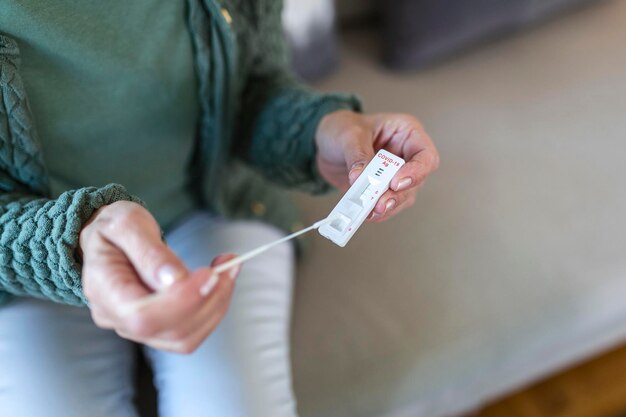Could Low Folate Levels Be an Indicator of Cancer? Here's What You Need to Know
Concerns over health can often take root from subtle signs—a recurrent headache, unusual fatigue, or in some cases, blood test anomalies. Among these, a diagnosis of low folate levels can raise eyebrows and questions. Could this seemingly innocuous vitamin deficiency signal something more serious, like cancer?
In this exploration, we'll delve into the relationship between folate levels and cancer risk, the essential role of folate in bodily functions, and what low folate levels could indicate about health. We'll also touch on practical ways to maintain adequate folate levels and when it's necessary to consult a healthcare professional.
Understanding Folate and Its Significance
Folate, a type of B-vitamin also known as vitamin B9, is crucial for many vital processes in the body. It's pivotal in DNA synthesis and repair, red blood cell formation, and overall cellular growth. Found in leafy greens, citrus fruits, and fortified cereals, folate is essential for maintaining everyday health.
The Role of Folate in the Body
Folate contributes to:
- DNA Synthesis and Repair: It helps form DNA and RNA and is vital for cellular division, particularly crucial during periods of rapid growth such as pregnancy and infancy.
- Red Blood Cell Production: Folate aids in the formation of healthy red blood cells, preventing anemia, which can cause fatigue and weakness.
- Support for Neurological Health: It plays a role in synthesizing certain neurotransmitters, impacting mood and cognitive function.
Low Folate Levels: What Could It Mean?
Low folate levels are not uncommon and can result from inadequate dietary intake, certain medications, or malabsorption disorders. Symptoms of folate deficiency may include fatigue, mouth sores, and even cognitive difficulties.
Is There a Cancer Connection?
The question arises, can low folate levels indicate cancer? Current research does not definitively point to low folate as a direct sign of cancer; however, the relationship between folate and cancer is complex:
- Cancer Prevention vs. Cancer Promotion: While adequate folate intake might help prevent certain cancers by ensuring proper DNA synthesis and repair, some studies suggest excessive folate could potentially fuel the growth of existing cancers by providing more resources for cell division.
- Specific Cancer Types: Certain cancers, such as colorectal cancer, may be linked with folate levels. Some research indicates that maintaining adequate folate levels could lower the risk of this type, but more is needed to substantiate these claims.
Exploring Related Factors
Causes of Folate Deficiency
Understanding why folate might be low is crucial. Here are potential causes:
- Diet: A diet lacking in folate-rich foods is the most straightforward cause. Individuals with poor dietary habits or restricted diets might be particularly at risk.
- Absorption Issues: Conditions like Crohn's disease or celiac disease can impair folate absorption, as can specific surgeries on the digestive tract.
- Medications: Certain medications, such as anticonvulsants or drugs used in cancer treatment, can interfere with folate absorption or metabolism.
Symptoms and Detection
Symptoms of folate deficiency can sometimes overlap with other conditions and include:
- Fatigue and Weakness: Resulting from anemia, a common side effect of low folate.
- Cognitive Difficulties: Such as forgetfulness or confusion, particularly in older adults.
- Mouth Sores and Changes in Skin or Hair: Including dermatitis and hair loss.
Detection typically involves a simple blood test measuring serum folate levels. If a deficiency is suspected, healthcare providers might investigate underlying causes through additional tests.
Practical Tips for Maintaining Healthy Folate Levels
Ensuring adequate folate intake doesn't have to be daunting. Here are some practical tips:
Dietary Sources: Incorporate more natural sources of folate into your diet:
- Leafy greens like spinach and kale
- Legumes such as beans and lentils
- Citrus fruits
- Fortified grains and cereals
Supplements: Consider folic acid supplements, especially for pregnant women or individuals with malabsorption issues. Always consult with a healthcare professional before starting any supplement regimen.
Address Underlying Health Conditions: Treating underlying conditions that affect absorption, such as celiac disease, can help improve folate levels.
Regular Check-Ups: Regular health checks help monitor folate levels and general well-being, catching potential issues early.
When to Seek Medical Advice
While low folate levels are not a direct sign of cancer, they could hint at underlying health issues worth discussing with a healthcare professional. Consult a doctor if you experience:
- Persistent and unexplained fatigue or weakness
- Recurring cognitive difficulties
- Noticeable changes in skin or hair
- Significant dietary concerns or absorption issues
A healthcare professional can offer guidance, conduct necessary tests, and address potential deficiencies or health concerns.
Insights for the Informed Reader
The link between folate deficiency and cancer remains an area of ongoing research. While low folate isn't a clear sign of cancer, maintaining adequate levels is part of a lifestyle that supports overall health. Whether through diet or supplements, achieving sufficient folate intake can help safeguard against potential health issues while optimizing bodily functions.
Knowledge, combined with routine healthcare advice, empowers you on a journey toward well-being. Stay alert to changes in your health and take proactive steps toward maintaining balance in essential nutrients like folate.
Quick Tips Recap 🌿
- Eat Folate-Rich Foods: Spinach, beans, and citrus are your friends!
- Regular Health Checks: Monitor blood levels and stay informed.
- Supplements: Use wisely when necessary, especially during pregnancy.
- Address Underlying Conditions: Seek medical advice for digestive or absorption issues.

Related Articles
- Are Breast Cancer Lumps Painful
- Are Chills a Sign Of Cancer
- Are Colon Spasms a Sign Of Cancer
- Are Lytic Lesions Always Cancer
- Are Polyps Cancer
- Can a Blood Test Detect Cancer
- Can a Ct Scan Detect Cancer
- Can a Dexa Scan Show Cancer
- Can a Gastric Emptying Scan Show Cancer
- Can a Lung Biopsy Cause Cancer To Spread
